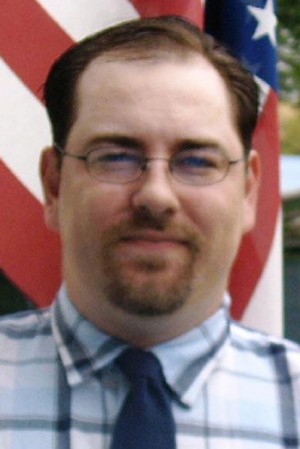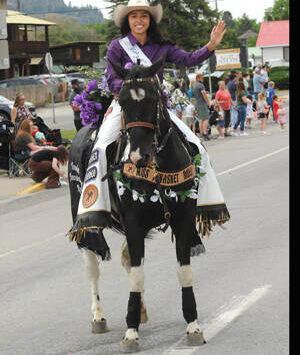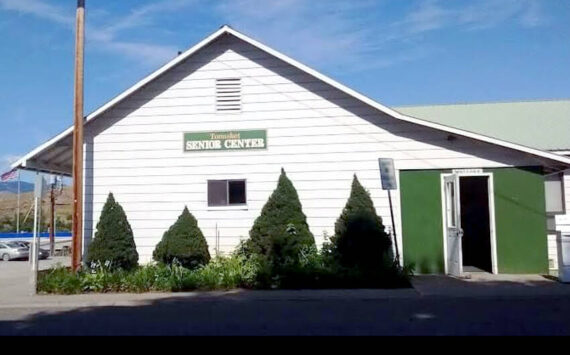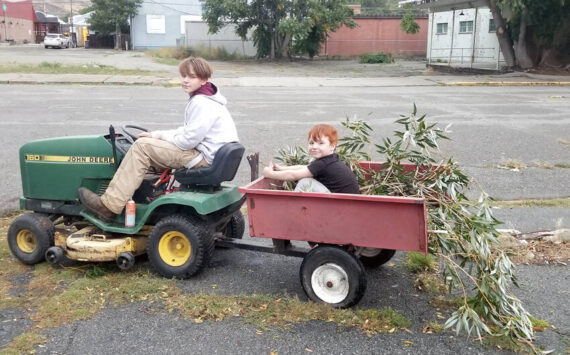Buffers reduced from 1000′ to 100′ for retail shops, processors
“As you can see, we have had a lot of discussion around this issue. The revised ordinance is very simple; legislature has outlined this very clearly.”
Mayor Patrick Plumb, City of Tonasket
TONASKET – The Tonasket City Council voted to adopt an ordinance reducing recreational marijuana buffers zones for marijuana producers, processors and retailers within the city from 1,000 feet to 100 feet from public parks, recreation/community centers, libraries, child care centers, game arcades and public transit centers.
The vote was taken following an ongoing discussion between City Planner Kurt Danison and Building Official/Permit Administrator Christian Johnson on whether the ordinance could be adopted by the city council or if it first needed to go before the Okanogan Planning Commission.
“It appears to me that this is a land use control and subject to the SEPA process; I encourage that the initiates add a zoning text amendment to address the matter. The Planning Commission will conduct a public hearing and develop a recommendation to the council to consider after having a hearing on the recommendation,” advised Johnson in an email to the City of Tonasket April 21.
Mayor Patrick Plumb deferred the discussion to Danison, who responded that he did not necessarily agree.
“If we were adopting changes to our zoning code I would agree. I see it more of an administrative matter when providing comments to the WSLCB regarding the licensing of a legal business that we do not regulate,” said Danison.
City Attorney Mick Howe drafted the ordinance reducing the buffer zones.

“As you can see, we have had a lot of discussion around this issue,” Plumb advised the council before the vote. “The revised ordinance is very simple; legislature has outlined this very clearly.”
Howe reminded council members that when the Omak protested the opening of the recreational marijuana retail store The Sage Shop, Omak ended up having to pay legal fees out of their general fund.
“We took it to court and prevailed,” said Howe, who represented the Sage Shop. “The Attorney General in the State of Washington indicated they would oppose the city’s denial of her ability to open her shop.”
Council member Claire Jeffko motioned to adopt the ordinance and council member Jill Vugteveen seconded it.
“I’ve heard both sides, and I think on the con side, are people using kids as an excuse,” said Vugteveen. “As a parent myself, I say regardless of whether a store comes to town this issue is something that should be addressed at home within the family. I feel that saying ‘no’ after it was voted in, would be discriminatory. I encourage people to trust in their values in how they raise their kids, and trust that when their kids are old enough they are going to act accordingly. I have kids myself, and trust in them to do the right thing.”
Asking for permission to speak, Dave Stangland of Tonasket said he thought it boiled down to “a question of values.”
“All of us value jobs and income and mental and physical health,” said Stangland. “Instead of this area becoming financially benefitted by growing it, I propose the county be the first marijuana-free county.”
Gina Garcia of Tonasket, who identified herself as a cannabis patient, spoke next. “As a patient, I have gone from a wheelchair to where I am functional, and all from this product this state has made medicinal,” said Garcia. “By keeping the stores away, you are taking money that you could be building the city with, away from the city and giving it to Omak and Seattle and everywhere else.”




